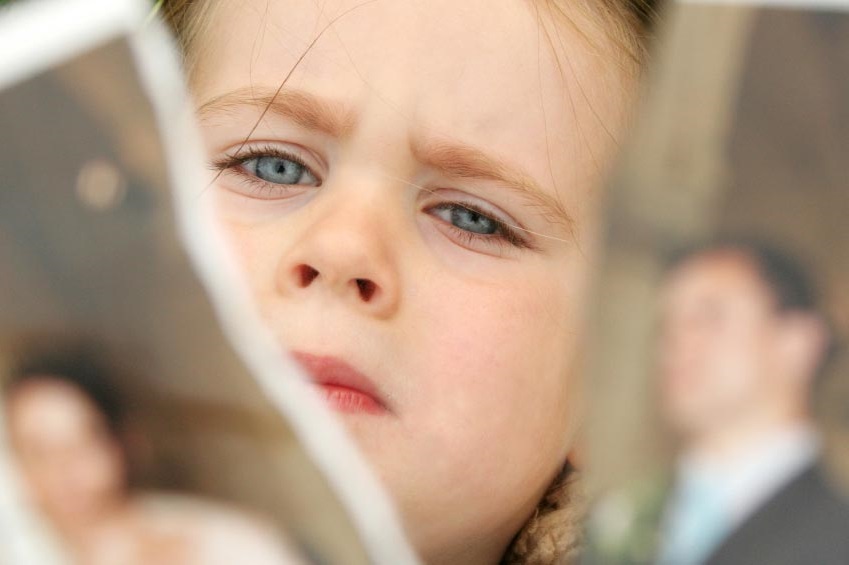|
No Communication, No Cooperation Parents going through a divorce usually are quick to acknowledge that continued parental cooperation is the best thing for their child after the break up. But cooperation requires communication, and communication is a very difficult thing to do successfully in the middle of a contested divorce. Distrust, fear, and many other barriers often get in the way of best intentions. Without good communication about the children, decisions about parenting often breaks down. That is when strangers will be brought in- like court appointed ad litems, psychiatrists, custody evaluators and ultimately a judge, who will make the decisions for the future of your family- something that no good parent should want. Two Homes, Two Personalities One communication barrier that parents often face, but is little understood even by professionals, is why parents often have two very different impressions about how the kids are adjusting to living in two households instead of one. One parent may report that the child is active and cheerful despite the changes. The other parent may report the child is emotional and withdrawn since the changes. It may not be as simple as the two parent's not being able to agree. It may be that the child has in fact actually developed two very different personalities to deal with living in two very different home lives. We know that the basic developmental function of childhood is to learn how to behave in society so we can thrive as adults. Therefore, children are always looking for cues from their parents on how to behave and get along in the world. But what happens when that world splits apart in a divorce and the child is getting two different sets of cues on how to behave in the world? In her 2006 book, Between Two Worlds, The Inner Lives of Children of Divorce. Elizabeth Marquardt reports that the findings of the first United States study of adult children of divorce revealed that children of divorce truly experience a split world. To cope with two sets of behavior cues, children often behave like different people to match the conflicting cues given from each parent. They are trying to interpret the one parent's world view and match it while they live in that house, and then sometimes radically alter their personality to match the other parent's world view when custody is exchanged. As a result parents isolated from each other after divorce may describe their child with very different characteristics and having very different needs. It is little wonder why the parents do not agree on what is best for the child, because they may see two very different aspects of the child in their time with them. What a divorcing parent can do Obviously, the split personalities of the child can't continue indefinately and they must eventually be reconciled. The child may choose on or the other personality or they may be forced to stitch together the two and form their own code of behavior. However it is resolved, the divided child's passage through adolescence may be made more difficult because of it. Parents going through a divorce should do all they can to align their parenting and their parenting cues to avoid children needing to split their behaviors. Here are three things you can do: (1) Come to an agreed custody arrangement that foremost keeps the child's best interest in mind is the a good first start. As long as this is agreed, you will avoid the cookie cutter solutions of a judge or court appointed personnel. You can be as creative and flexible as you need and a professional family law attorney will have various ideas on how to set up the arrangement and make it legally binding. (2) Create a carefully constructed, detailed and written parenting plan is a good next step. This plan should be developed over much discussion and should take different developmental stages into account. Your attorney may be of assistance here, but other social and psychological professionals may give you valuable help too. (3) Inevitably, parenting issues will come up that fall outside the custody or parenting plans. You therefore must do your best to maintain a positive relationship with the other parent and have good communication about unanticipated parenting issues arise. A professional parenting coordinator may be of great assistance if you can't work it out on your own. These steps, and an honest commitment to reconcile different parenting styles before they cause your child to feel like they have to lead a dual life, will go a long way to keeping your children whole.
5 Comments
patricia
1/30/2017 05:02:10 pm
I found this out myself by experience. Not only does divorce contribute to this, but also the conflict in the home that lead to the divorce, and the sides taken by the child`s extended family. Most divorces could probably really be said to be the product of unfinished family business anyway. In one home nothing can be said about dad that is positive. In the other nothing can be said about mom that is positive. Internalized shame and grief over being forced to hear awful things about one`s parents, to take sides and the strong sense of disapproval towards one parent or the other, which is really from the child`s view, one half of them, also leads to splitting . I think the best thing parents could do is begin very earnest work on truly dealing with the underground issues that led to the situation, healing their own pain, shame and other related issues. And letting extended family know that under no circumstances are either parent to be discussed anywhere near the child, in a way that is despising and condemning but rather factual and merciful. Some families are so full of petty bickering, jealousy and hate that it is impossible to create an atmosphere of mercy that encourages everyone to move on to more mature and loving ways of handling things. Such families often prefer to stick to their way of life in which case it may be better to severely limit contact. Otherwise the above mentioned attempts at things like parenting plans, counsel from social workers etc. will only create a reinforced layer of apparent okayness that makes the underlying anguish unreachable. Kind of like a well manicured garden over a toxic waste dump. Been there, wouldn`t wish it on anyone. But sadly unless it gets properly resolved, it will be passed on.
Reply
5/26/2022 01:48:42 pm
They are trying to interpret the one parent's world view and match it while they live in that house, Thank you for the beautiful post!
Reply
5/26/2022 02:37:00 pm
As a result parents isolated from each other after divorce may describe their child with very different characteristics and having very different needs. I’m so thankful for your helpful post!
Reply
There is recuperating in telling. There is recuperating in uncovering misuse. Recuperating in is being honest. There is recuperating in realizing you are not to fault. There is recuperating in supporting yourself. There is recuperating in defining limits. There is recuperating in confidence. Clutch trust that you will recuperate.
Reply
7/6/2023 04:37:54 pm
One parent may report that the child is active and cheerful despite the changes. Thank you for making this such an awesome post!
Reply
Leave a Reply. |
Need more information about this or other family law topics in Texas?
Click the button below to book a FREE ATTORNEY CONSULTATION (832) 819-3529
Attorney Sean Y. Palmer has over 20 years of legal experience as a Texas Attorney and over 25 years as a Qualified Mediator in civil, family and CPS cases. Palmer practices exclusively in the area Family Law and handles Divorce, Child Custody, Child Support, Adoptions, and other Family Law Litigation cases. He represents clients throughout the greater Houston Galveston area, including: Clear Lake, NASA, Webster, Friendswood, Seabrook, League City, Galveston, Texas City, Dickinson, La Porte, La Marque, Clear Lake Shores, Bacliff, Kemah, Pasadena, Baytown, Deer Park, Harris County, and Galveston County, Texas.
Call (832) 819-3529 If you live in the Houston area and would like to consult with one of our attorneys, please leave your information below.Archives
July 2024
Categories
All
|
The Palmer Law Firmwww.thepalmerlawfirm.com
(c) 2024 Sean Y. Palmer |
DISCLAIMER:
This website is for educational and informational purposes only and is not, nor is it intended to be, legal advice. Viewing of this website does not create an attorney-client relationship. All legal matters should be discussed with a licensed attorney before you take any action. You should consult with an attorney for advice for your individual situation. Sean Y. Palmer is the attorney responsible for the content of this site. DATA NOTIFICATION: Pursuant to the Health Insurance Portability and Accountability Act, and the Texas Medical Records Privacy Act of the Texas Health and Safety Code, consumers are noticed that their protected healthcare information may be transmitted electronically. |



 RSS Feed
RSS Feed